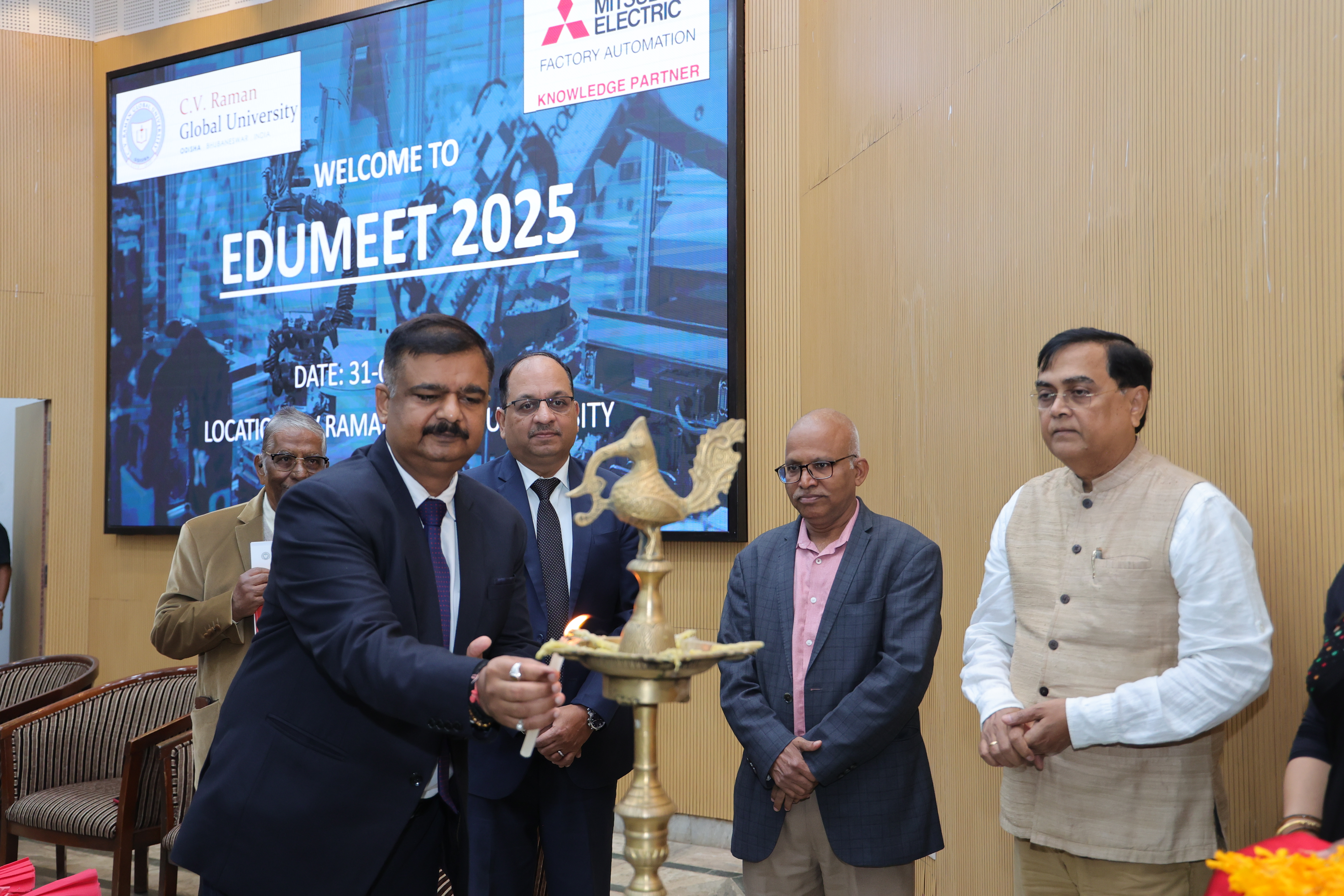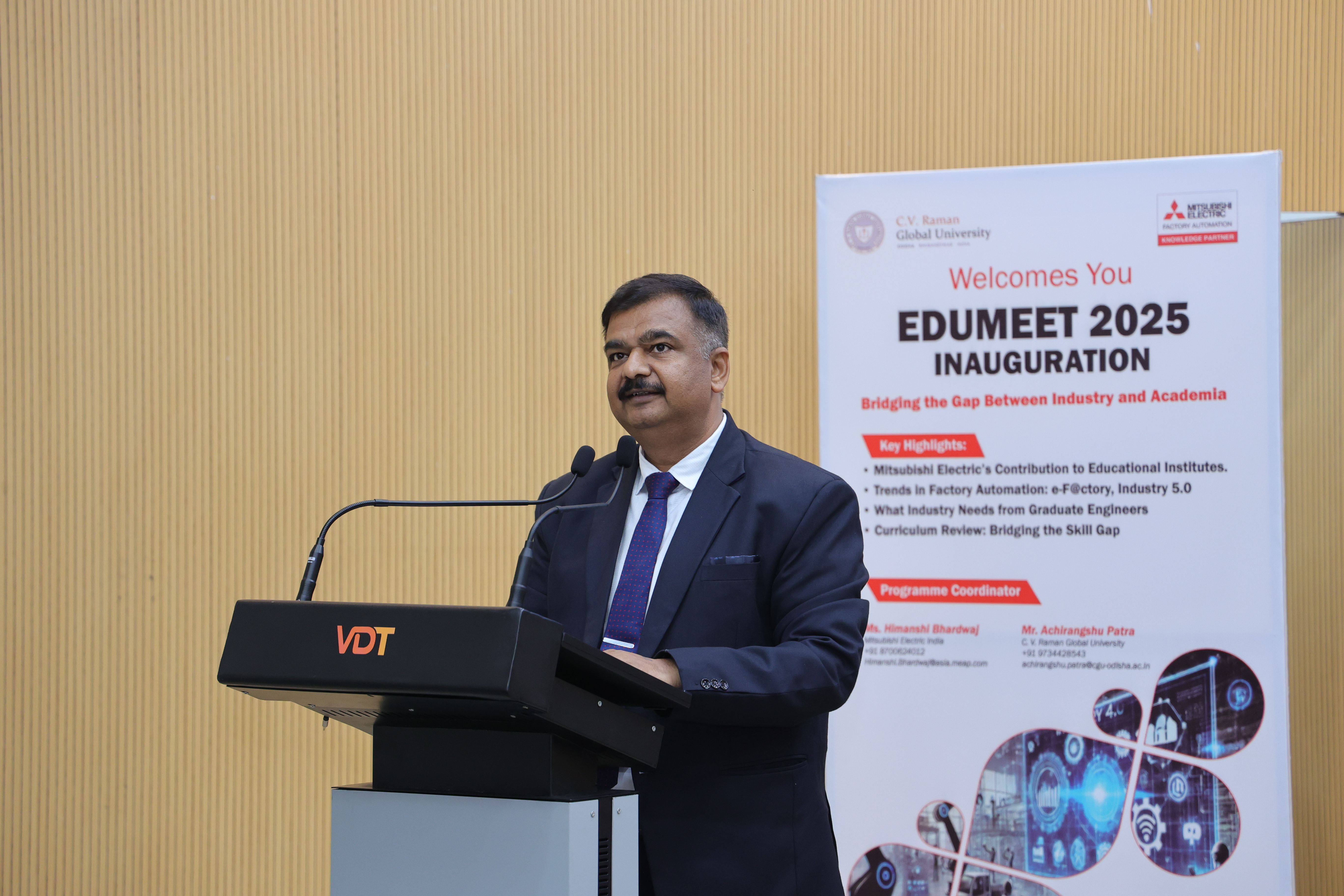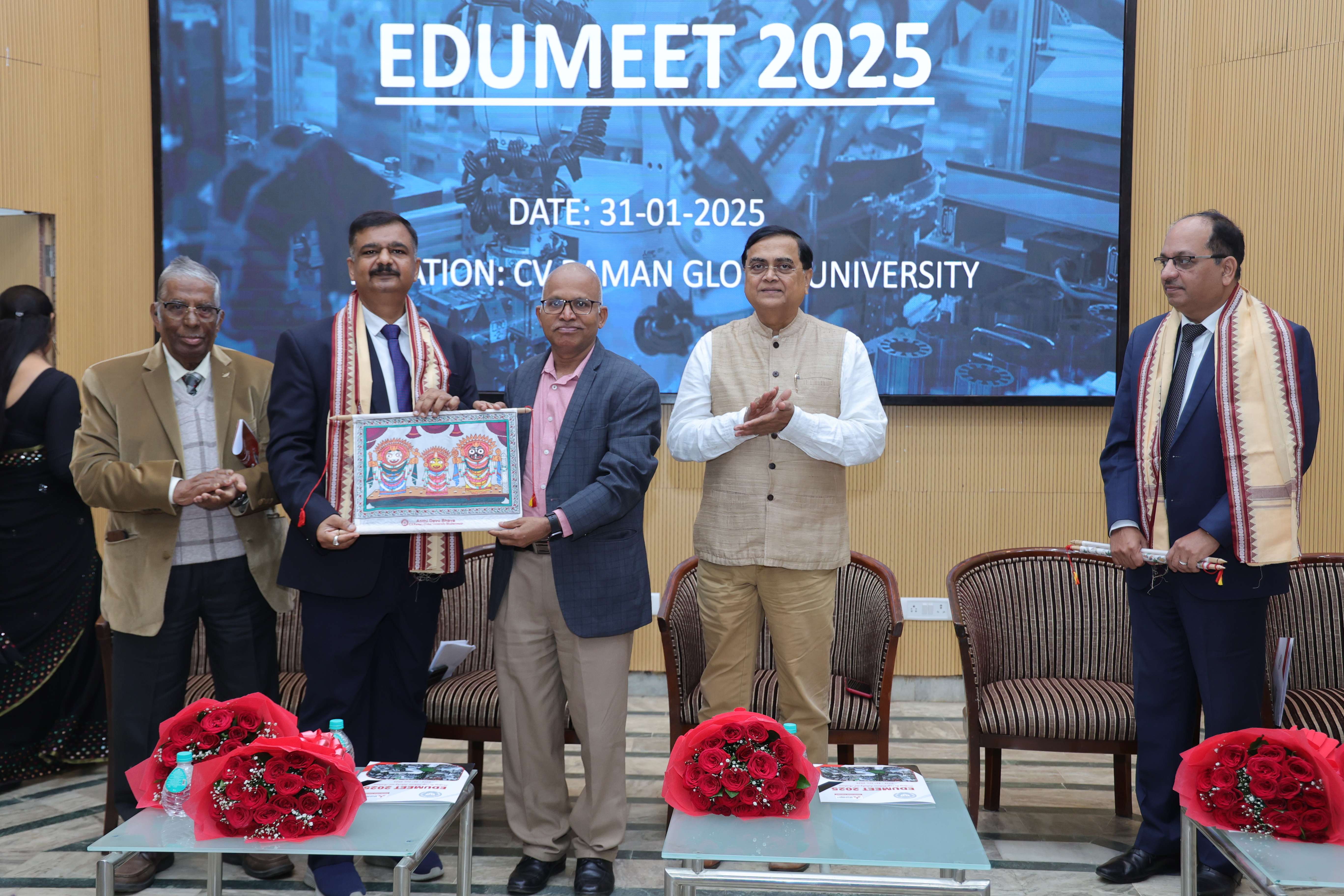Ministry of Education
Professor Kalpesh H. Wandra Addresses Edu Meet 2025 at C.V. Raman Global University, Bhubaneswar: Bridging Industry and Academia
Posted On:
03 FEB 2025 4:12PM by PIB Ahmedabad
Professor (Dr.) Kalpesh H. Wandra, Pro-Vice Chancellor of Rashtriya Raksha University, had the honour of serving as the Chief Guest at the Edu Meet held at C.V. Raman Global University in Bidyanagar, Mahura, Janla Bhubaneswar, Odisha. This significant event was hosted by Professor Banshidhar Majhi, Vice-Chancellor of C.V. Raman Global University.

The Edu Meet brought together a distinguished panel of guests including Mr. Sanjib Kumar Rout, Founder and President of C.V. Raman Global University; Mr. Sunil Mehta, Head of CSD at Mitsubishi Electric India; Professor N.S. Das, Director of the Industrial Automation Centre at C.V. Raman Global University; and Dr. Soumya Mishra, IQAC Coordinator at C.V. Raman Global University.

The central theme of the event revolved around the relationship between industry and academia in today’s rapidly evolving landscape. During the discussions, industry experts shared insights on several critical topics:
- Significance of Industry-Academia Collaboration: The speakers emphasized how partnerships between educational institutions and industries are essential for fostering innovation and ensuring that academic programs align with real-world needs.
- Expectations from Newly Graduated Engineers: The panel addressed what industries expect from fresh graduates entering the workforce, highlighting skills such as adaptability, technical proficiency, and problem-solving abilities.
- Recent Trends in Factory Automation: Experts discussed advancements in factory automation technologies and their implications for both education and industry practices.

During his keynote address, Professor (Dr.) Kalpesh H. Wandra focused the critical importance of Academia-Industry Linkage in today’s educational and economic landscape. He pointed out that historically, academia and industries have operated in isolation from one another; both sectors have pursued their own distinct paths without sufficient collaboration. However, he stressed that in our rapidly changing environment—characterized by technological advancements and evolving market demands—it is essential for academia and industry to work together closely.
He articulated that fostering collaboration between these two sectors can lead to ground-breaking innovations that benefit society as a whole. By bridging the gap between theoretical knowledge and practical application, institutions can better prepare students for the workforce while simultaneously addressing real-world challenges faced by industries.
During his address, Professor Wandra emphasized the critical need for universities to bridge the gap between theoretical knowledge and practical application in response to the evolving demands of the 21st-century economy. He pointed out that while academic institutions traditionally focus on imparting theoretical knowledge, industries are increasingly seeking practical solutions that can be immediately applied in real-world scenarios.
He further articulated that the rapid advancements in technology—including artificial intelligence and automation—have created an urgent demand for a workforce that is not only knowledgeable but also adept at navigating industry challenges. He called for a collaborative approach where educational institutions and industries work together to ensure that graduates are equipped with both theoretical foundations and practical skills necessary for success in their careers.
In his speech, Professor Wandra elaborated on various topics, including the integration of Artificial Intelligence (AI) and Machine Learning (ML), advancements in robotics and collaborative robots (Cobots), the expansion of edge computing, the adoption of digital twins, an increased focus on cybersecurity, and sustainable and energy-efficient manufacturing.
He also presented a case study on the collaboration between Siemens and RWTH Aachen University, showcasing it as a model partnership.
Furthermore, he proposed several solutions to enhance the relationship between industry and academia in today’s era. These included an industry-integrated curriculum, opportunities for internships and apprenticeships, collaborative research and development initiatives, faculty exchange programs and training, as well as fostering a startup ecosystem and entrepreneurship. In the continuation, he has also enforced to implement NEP2020 in curriculum and form clusters of universities &Institution for successful implementation of NEP 2020 framework in effective way.
The Edu Meet served as a platform for dialogue on how educational institutions can align their curricula with industry needs and expectations. It also provided an opportunity for stakeholders from both academia and industry to explore potential partnerships aimed at enhancing research initiatives and driving economic growth.
The event concluded with a call to action for all participants to actively seek opportunities for collaboration and to recognize the mutual benefits that such partnerships can yield.
(Release ID: 2099144)
Visitor Counter : 118